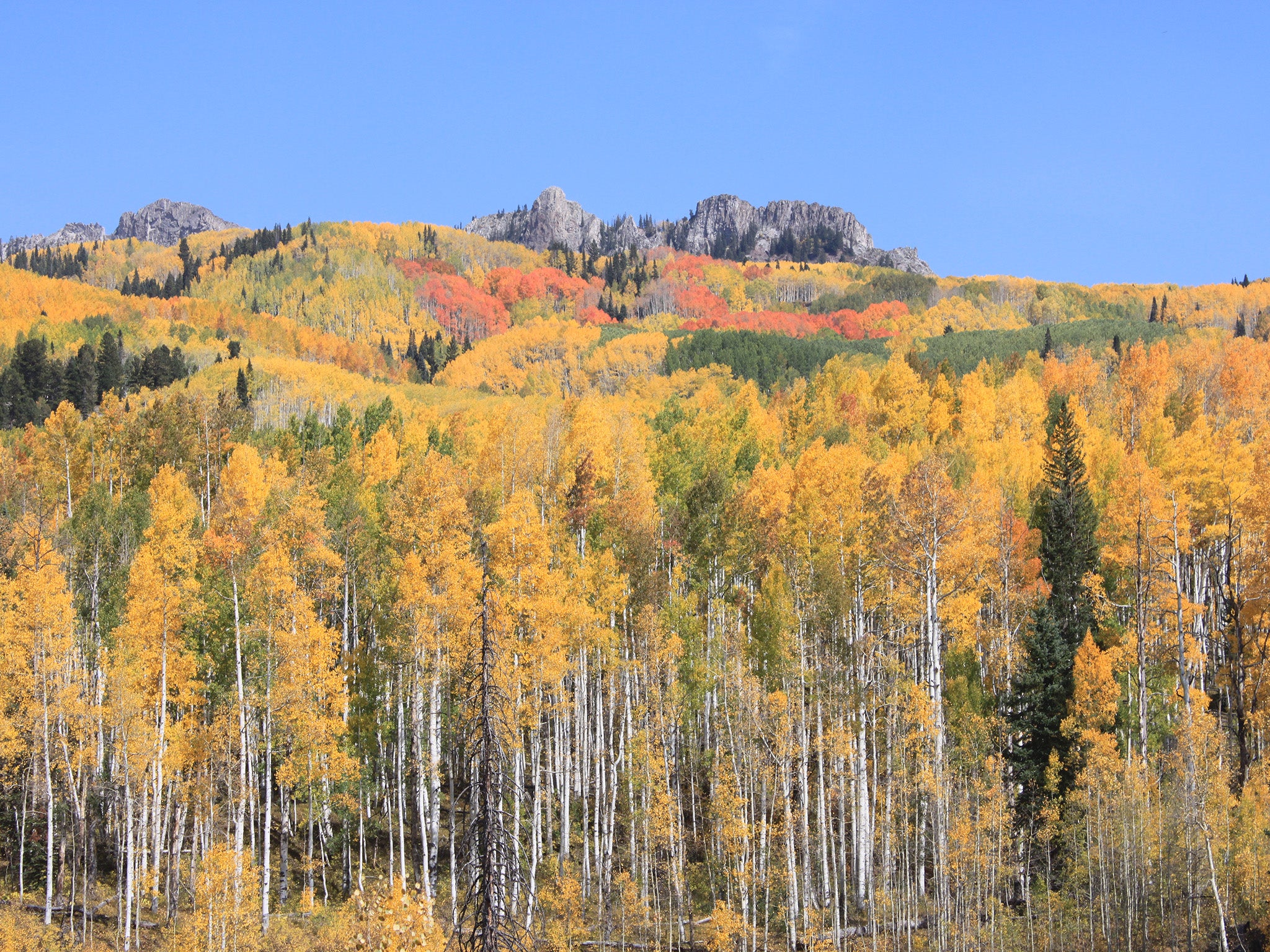Climate change could eliminate aspen forests in the western US, scientists say
Rising temperatures and drought have killed millions of aspens in the last 10 years

Your support helps us to tell the story
From reproductive rights to climate change to Big Tech, The Independent is on the ground when the story is developing. Whether it's investigating the financials of Elon Musk's pro-Trump PAC or producing our latest documentary, 'The A Word', which shines a light on the American women fighting for reproductive rights, we know how important it is to parse out the facts from the messaging.
At such a critical moment in US history, we need reporters on the ground. Your donation allows us to keep sending journalists to speak to both sides of the story.
The Independent is trusted by Americans across the entire political spectrum. And unlike many other quality news outlets, we choose not to lock Americans out of our reporting and analysis with paywalls. We believe quality journalism should be available to everyone, paid for by those who can afford it.
Your support makes all the difference.Climate change caused by greenhouse gas emissions could cause aspen forests to largely disappear by 2050, unless something is done to combat rising global temperatures.
The aspen, an iconic tree that blankets mountain slopes in the western US, was the subject of a scientific paper that said the widespread death of aspen forests was near-certain if global warming continues at the pace it has in the last 10 years, the New York Times reported.
In the past decade, millions of aspen trees in the western US have been killed due to drought and rising temperatures that scientists attribute to climate change.
William Anderegg, a researcher at Princeton University who led study, said the aspen is a wet-loving tree that lives in a dry landscape, which appears to be getting drier.
The scientists found that if climate change is brought under control, many aspens forests would be saved.
Dr Anderegg descried how aspens die in drought conditions as being similar to a heart attack. When the ground gets too dry, air bubbles appear in the tubes that carry water throughout the tree and disrupt water transport, the Times reported.
This report on aspens is the latest showing the effects of climate change on trees across the globe. A report released two weeks ago said that the Amazon rainforest was losing its ability to fight climate change.
Follow @PaytonGuion on Twitter.
Join our commenting forum
Join thought-provoking conversations, follow other Independent readers and see their replies
Comments